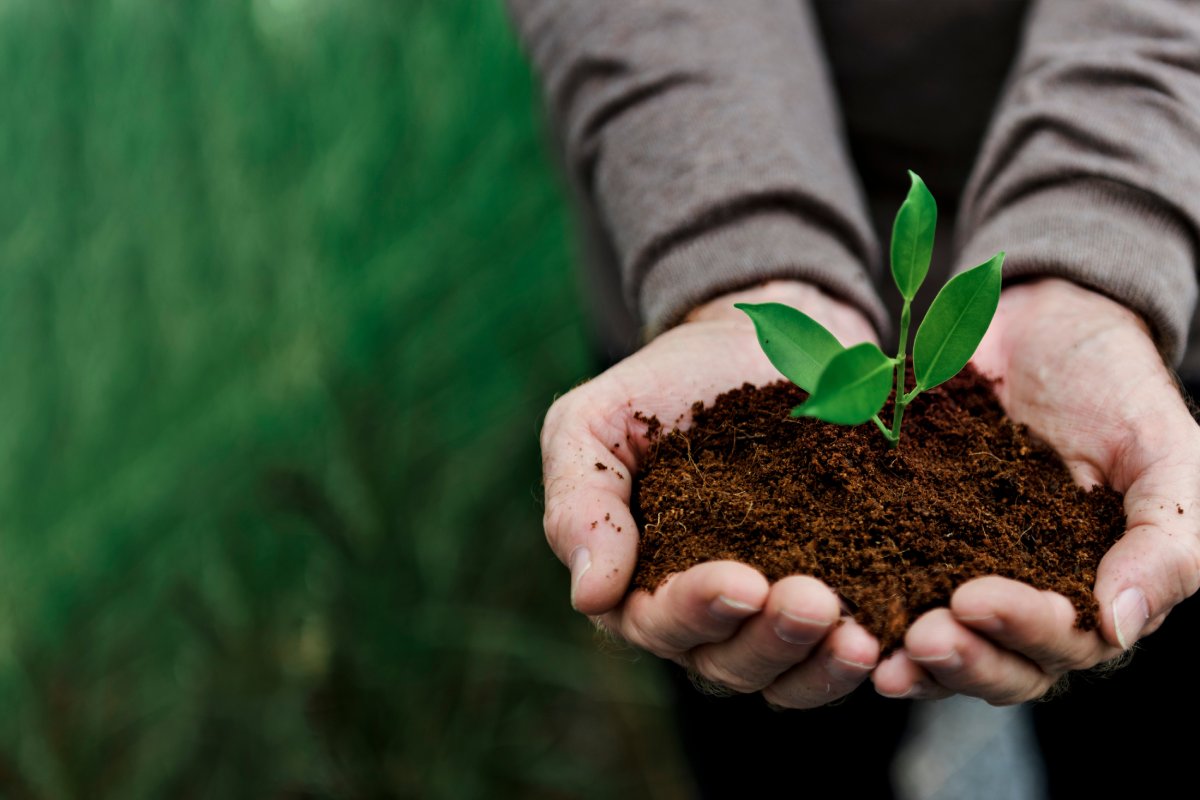
Today, sustainability is the buzzword in modern business as more and more people are becoming aware of the impacts that we as a collective have on our environment. There’s much evidence to support the fact that over the last several decades we have driven certain species to the point of extinction, caused irreparable damage to many fragile ecosystems, and are slowly but surely exhausting many of our planet’s natural resources.
In this article, we’re going to look at why sustainability is so important, list a few examples of what sustainability looks like, and define its deeper meaning. If this is something you are interested in exploring further, we urge you to read on.

Why is it called sustainability?
So, why is it called sustainability? Well, the literal definition of the word is: “the ability to be maintained at a certain rate or level” / “the avoidance of the depletion of natural resources in order to maintain an ecological balance.”
This word applies perfectly to our current situation as many scientists believe that if we are to continue along the path of reckless consumption that we are currently on, it won’t be long before we pass the point of no return.
Sustainability is all about living within our means – taking only what we need and leaving enough in the pot to keep the world turning.
Put it this way: imagine you decided to live off the grid and secure a small piece of farmland of your own in the wild. You’ve got a supply of fresh water and some chickens. How long do you suppose you would be able to last if you ate your chickens faster than they could reproduce? Or if you over-foraged the area immediately surrounding your land?
It’s all about finding the right balance.

Why is sustainability so important?
Sustainability is so important because it would be woefully embarrassing if a species as intelligent and capable as the human race managed to manufacture their own extinction through mindless greed.
Can you imagine how baffling that would be to an advanced alien race studying our planet from afar?
“It’s so sad that this promising species didn’t make it. How did they die?”
“Gluttony. They just kept consuming – more than they could ever possibly need. They overfished their oceans, they cut down all of their rainforests, they drove all of the species that were critical to biodiversity to the point of extinction, and they burned through fossil fuels at such an alarming rate that it slowly heated their planet and eventually cooked them alive.”
“Wait, what?”
“Yep. And they did all that despite all of their scientists urging them to be more sustainable. They even had the technology to produce free energy for all and yet they ignored it in the name of money.”
“What’s money?”
“You don’t want to know…”
It might seem a little extreme, but this could all too well be our reality unless we keep the conversation going. We need to do everything we can to educate people on the importance of sustainability and apply pressure to those in power to support us.
Without sustainability, we’ll run out of chickens.
What are examples of sustainability?
First, let’s break sustainability down into its four primary pillars:
- Human sustainability
- Social sustainability
- Economic sustainability
- Environmental sustainability

Human sustainability
Human sustainability refers to investing in our society. Investments in health, education, and nutrition. Nurturing our young people to grow into the leaders of tomorrow while supporting those who come before us.
The UK’s NHS is a brilliant example of human sustainability (or rather, it was); the investment in public health services to provide everyone with access to free healthcare. Today, this system is under threat of privatisation – which is another issue entirely.

Social sustainability
Social sustainability is designed to preserve social capital through the investment in and creation of services that support the frameworks of our global society; communities, cultures, reciprocity, teamwork, law & order, equality, human rights, and so on.
You could argue that social sustainability is the process of creating the foundations upon which human sustainability can function.
A great example of social sustainability is the liberal drive toward equality and equal opportunity for all in terms of education, healthcare, and personal decision-making.

Economic sustainability
Economic sustainability is the process of keeping capital intact and improving our overall standard of living. It’s maintaining economic growth without burning through all of our resources. This is the most fragile of the four pillars as economic growth has historically been driven by greed and competition. New economics is aiming to be inclusive of natural and social capital while challenging the ethos that all growth is good and the bigger the better.
Economic sustainability needs to be regulated with the utmost care and attention, supporting social and human sustainability as a priority.
A great example of economic sustainability is recycling. By taking discarded products such as used glass bottles and scrap metal and then repurposing them into new products, giving them another life, as opposed to allowing those materials to go to waste in landfill.

Environmental sustainability
Environmental sustainability is arguably the most important pillar of all, as without a healthy and sustainable environment, we won’t have people, a society, or an economy to sustain.
This pillar aims to improve both human welfare and that of the other species we share our planet with, including the protection of natural capital (e.g., water, minerals, land, etc.).
For the modern business owner, environmental sustainability should be at the forefront of their priorities – specifically ensuring that their day-to-day operations does not negatively impact our environment.
A great example of environmental sustainability is composting. How does composting work? It’s the process of taking waste food, breaking it down naturally, and turning it into fertiliser for your plants. Put it this way: if everyone in the United States composted it would be the equivalent to removing 7.8 million cars from the road.
Conclusion
To some people, sustainability is a bad word. It poses a threat to their annual profits and their chance of securing a hefty bonus at the end of the year. To the rest of humanity? It’s a matter of our survival.
You may think it is hyperbole or nonsensical fear-mongering. We say: how about we make more of an effort to be sustainable, just in case?




